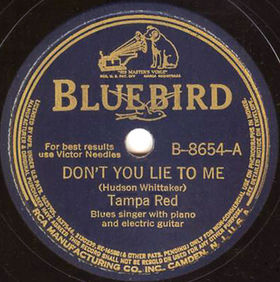 |
| Don't You Lie to Me (Photo credit: Wikipedia) |
The best type of lie is a half-lie, in which truth is combined with lie so you don't know which is which and accept the whole thing is true.
There has been several businesses in recent years that claims to 'reward' its affiliates for promoting the business by buying the the products (by the affiliates) and giving them away to the public (free). The more they do this, the more they are rewarded.
This particular explanation is only half true, but do you know which half?
Let us first examine how one such scheme works.
The "Promotion Disguised Ponzi"
The best known example of such in recent years is Zeek Rewards, a Ponzi scheme that was
shut down in August 16, 2012 by the Security Exchange Commission, believe to have sucked in over 700 million dollars from about a million members, making it the widest spread Ponzi scheme in US history. For comparison,
Bernie Madoff's Ponzi involved BILLIONS of dollars, but only about 10000 victims or less. This sort of Ponzi is more insidious because it went after the "average Joe", the everyman, whereas Bernie Madoff went after the "fat cats", people who can afford to lose such money.
NOTE: The following is a short summary on how Zeek Rewards worked. If you want detail history how what was Zeek Rewards,
please refer to my "investigation" piece.
Zeek Rewards allegedly "rewards" its affiliates for affiliate's purchase of "bids" in its Zeekler penny auction (a sister business, owned by the parent umbrella corporation Rex Venture Group) and giving them away to "potential customers" (usually nothing more than an email address). For every bid purchased and given away the affiliate gets "VIP Points" that entitles them to "revenue share" at rates of up to 1.8% per day, compounded daily. There are a couple wrinkles like the VIP points expire after 90 days, and the rate varies between 0.5 and 1.8% daily, but the overall idea is the same: the more you buy (and give away), the more revenue you share.
You have two balances in Zeek, a "cash" account, and a "VIP Points" account. Every night, based on how much VIP points you have, the "daily profit share" is added to your cash account. For example, let's say you have 1000 VIP points. And the daily profit share is 1.5%. At midnight, you will have 1000 VIP points and 15 dollars is added to your cash account. Then the cash account is distributed as you wish, as you can repurchase the bids (rollover) from 0 to 100%. If you do 100% repurchase, you will have 0 in cash account and 1015 VIP points, for example. Your cash account can be "cashed" once per week, but you are encouraged to "repurchase" bids for compounding.
There is very little documented genuine purchase from customers who buy bids as bids, not as VIP points that entitle them to revenue share, affiliates are paying each other, thus, Ponzi scheme, albeit a rather fancy looking one. Indeed, when Zeek Rewards was shut down, and SEC court document was made public, it was revealed that Zeek had virtually NO profit in July 2012 (took in 172 million, paid out 170 million) and would have gone insolvent very soon.
Yet Zeek Rewards is hardly the first company that encouraged its affiliates to buy their product and give it away for free to participate in the comp plan and got slapped hard for it... One of those prior offenders was Omnitirtion International, in a case that rocked the MLM world in 1992.













